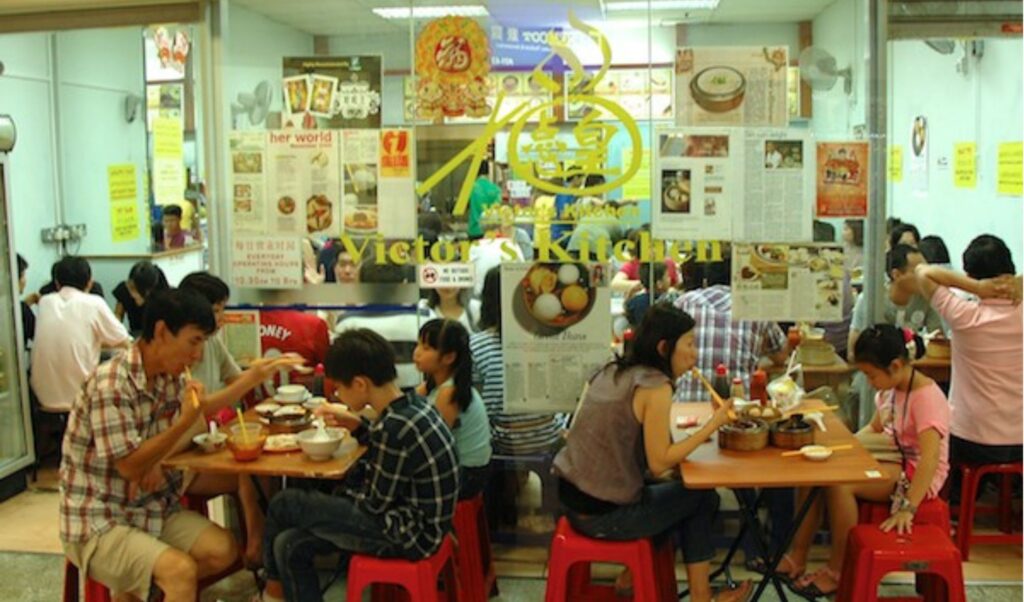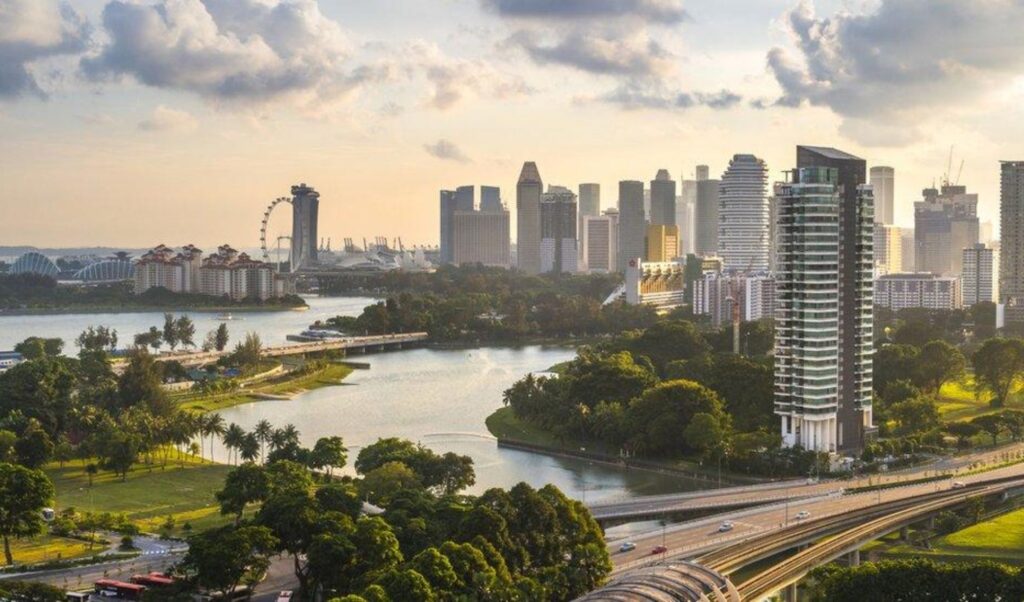True and False in Singapore
Favourites and Frustrations From My Seven Years
PART ONE
Mixed Feelings
It is complicated to reflect in public on the shortcomings of a culture one has lived in and been blessed by. Consider the potential arrogance. Who am I to make such criticisms? And of a nation as impressive as Singapore? Consider the ingratitude. In the providence of God my wife, and the mother of my children, is Singaporean. I arrived in Singapore with few qualifications and was granted an employment pass and, subsequently, permanent residency. I enjoyed a seven year break from fear of almost all danger, especially at the hands of Singaporeans regardless of their walk of life (this is particularly apparent to me after three months living in Toronto, Canada – the break is over).
I am also reluctant to criticize Singapore, and the church culture I was part of while I lived there (the latter being unavoidably influenced by the former), because I know that some may read this and be emboldened in their own criticism, or perhaps unsettled in their relationship with either or both. But there is a greater issue at hand. The Singaporeans I know do not think or speak about these issues deeply enough, and it is to their detriment. My words here are intended to encourage deeper thinking and a healthy critical posture, not to unsettle or send anyone packing and following us to Canada (really, it is quite dangerous here).
But before I critique I want to celebrate. Because although Singapore tells some lies (every nation does) it tells some wonderful truths. And with these truths it blesses its citizens. I am fond of the citizens of Singapore. And I love the citizens of heaven God has placed there. My limitations in experience and anaylsis will be evident. But I trust my love for brothers and sisters following Christ in Singapore will be evident as well.
Family Is Good

Family closeness in Singapore is on a spectrum. This is the case in any culture. Although, I would say that the starting point is “quite” (a favourite Singaporean qualifier I don’t think I will ever retire) high, compared with my native Australia, for example. I moved from my mother’s care to my father’s at age nine, and my father parted ways with me when I was sixteen. In Singapore this is unthinkable.
This is a common conversation in Singapore, especially if you are marrying in from the outside. “Is her family close?” And the reality ranges. On one end of the spectrum there’s a meal once a week, some babysitting of the grandkids, and maybe an annual family holiday. Further up the spectrum these become more regular and intense. The family dinner becomes fixed and perhaps multiple times per week. The grandchildren may be with the grandparents multiple days of the week after school. Family WhatsApp group chat anyone?
This is challenging. Mothers and fathers are overbearing about the career choices of their children. Mothers help so much it becomes unhelpful. Grandparents grandparent like they parented, not realizing (or accepting) that they need to take a step back in their new role. Privacy may not be a core value in the family. And it is very easy to see all this as an in-law, especially as a western foreigner, and chaff, grumble, and criticize. And what is entirely missed? These people love each other.
Family is good. It is something God made and uses to bless. Singaporeans know this. They know it deep down. They stick together like the ice is sticking to the sidewalk in Toronto right now. [At this point my wife commented: “You know the ice will melt and then it won’t stick to the sidewalk anymore, right? But families will stick together.” She is professionally trained to write with accuracy. Her editing is not for the faint of heart.]
They love deeply, and they are loyal. Once you learn the language the love is everywhere. All the food sharing? Love. Family is good. All the inquisitiveness about work and kids? Love. Family is good. All the “help” – Lord, have mercy. If my mother-in-law helps me with one more thing! That’s just a joke. My mother-in-law is excellent. As I was saying, all the help: love.
I came from a very individualistic and independence driven culture. I needed to learn from Singapore that family is good. That is a truth I needed to have preached to me. Sometimes the church misses this. There is an attempt in some churches to pull people away from their biological family towards church relationships. I think this is misguided. Singapore is right that family is good. While it is true that we receive family relationships in Christ that transcend this life, this does not destroy our biological relationships or our responsibilities within them. Family is good. Singapore is telling the truth.
Honour Your Father and Mother (and the Uncle and Auntie in the Street)

Singapore changed the way I relate to the senior citizens of humanity. I remember first hearing that older men and women were addressed as uncle and auntie. Initially, I looked upon this as a sweet gesture. But it is much more than that. It represents the “reverence due to those to whom we owe our being” (Calvin). These are the men and women who have raised the children who constitute our generation. And they did so in much harder times than my generation have come of age in.
But it goes even further. There is a healthy recognition in Singaporean life of the “degrees of dignity” appointed by God in society (Calvin again). These are the “several places and relations, [with] superiors, inferiors, or equals” God has arranged (WSC Q.64). Singaporeans rise in an instant to give an auntie their seat on public transport. Singaporean parents will hold back their children without hesitation in order to allow an uncle to enter a room or pass a narrow section of the footpath.
The spirit in which this is done has nothing to do with pragmatism. It operates at a much deeper level in people and at this point, Singapore is telling the truth beautifully – it is simply obeying God. I am thankful that my children learned this in a culture as well as the Bible, and it delights me to hear them address uncles and aunties far from their native Singapore.
Eating Is Amazing

I had never planned my day around my meals. I was not accustomed to waking up in the morning and wondering, “What am I going to eat today?” This is the Singaporean way. Food is good. Food is life. Eating is amazing. It turns out that one of the most ordinary things of life, one of the most regular and routine, can also be a delight and joy. Not every Singaporean knows that food is a gift from God to be enjoyed a such. But I believe every Singaporean lives like it.
It is not unique to Singapore, of course, but Singaporeans eat well together. We spent seven years in a church that had a food court in the same building. Now that we do not have this I realize how significant it was to the life of the church. It is one of the things I miss most.
One of my first meals in Singapore was dim sum at Victor’s Kitchen in Sunshine Plaza. For those who are interested, the har gow and the char siew bolo bao are very good here. The har gow is the best I have had. And, to legitimize this claim, I have eaten har gow in Toronto, Hong Kong, and Malaysia. So, although I am a foreigner, I believe I have done a good deal of the required reading.
But I digress. I enjoyed Victor’s Kitchen very much. I would regularly go there with family, with friends, and alone. After a while, the workers began to remember me. Then after some more time I enjoyed the gesture that signifies one has truly made it into the hearts of business owners in Singapore: “Hey, hello! Haven’t seen you for so long!” I will remember Victor’s Kitchen fondly. I adopted them as “my” dim sum. And in their way they adopted me too.
Home Is Important and Song Makes Strong

How could we reflect on Singapore without talking about NDP (National Day Parade)? This enables me to combine two truths Singapore tells. For historical, political, and geopolitical reasons, Singaporeans need to stick together. This is on full display in the glorious singing and dancing bonanza that is NDP; a celebration of all that Singapore is and values, has accomplished in the past, and will strive for in the future.
NDP is sufficient subject matter for multiple posts. For our purposes we should note the theme of home. It is no accident that Singapore’s favourite song (about itself) is ‘Home.’ Perhaps above all else, NDP is a story-telling event. And this is what the songs are. They are vehicles of the story of Singapore, and in these songs Singaporeans recognize their individual stories which resonate with those of others and constitute the whole. The singing at NDP looks like a performance, but it is really Storytime.
The family (nation) gathers around the hearth (Padang) to have the photo album opened by Dad (PM) and hear the ‘story of us,’ the tale of the years. There are many themes. But the one that functions as a foundation for them all: Singapore is home. Singapore is more than just a collection of houses; it is a home for the families who live in those houses. It is a place that remains ‘home’ if you wander abroad and a place you will always be welcome when you return. The beautiful moment Sam Gamgee returns in time for dinner after his long journey and is “expected” comes to mind. In the Singapore story, you will always be expected.
I believe there are parts of the Singapore story that need critique, correction, and even rejection – if one is a Christian. But is the emphasis on an earthly home one of them? During my years in Singapore, I would have said yes. This appeal to the affections of a people on the basis of the land they were born and raised on, where their parents and grandparents lived before them is “worldly.” It is not where Christians should spend their affections. We are to be heavenly-minded and to cling lightly to the things of Earth. In fact, we (Christians) are citizens of heaven. Attachments to things of this world are not signs of spiritual health but spiritual immaturity. I believe I was almost entirely wrong about this. Singapore was telling the truth on this one, albeit imperfectly, and without biblical framing.
God made a world. And He gave it to humanity to live in. In God’s world, men and women become husbands and wives who become fathers and mothers who raise families in houses that become homes, in clusters with others doing the same. All of this happens in a particular place and time, where a particular language is spoken, where particular songs are sung, where particular meals are shared, and so on. It happens on particular streets, in particular buildings, and at particular meeting places. When we engage these things we make memories, and these memories connect us to one another, the dead to the living and the living to the not yet born. This is good; it is in our nature to do this. And when the gospel and Spirit come to us they do not erase these features of our nature. Grace does not make us angelic beings detached from the physical world, it makes us restored human beings who can rightly steward and love our earthly life as a gift from God.
To speak personally, I have Singaporean children who will at some point hold Australian passports and may spend much of their school years in Canada. How am I to raise them to think about home? “It doesn’t matter where we live; our citizenship is in heaven.” “Home is wherever our family is.” “Canada will become our home.” I do not think I will major on any of these. Instead, I will tell them: “You are Singaporean. God decided that. You took your first steps in Singapore. Your grandparents helped to build Singapore. You are connected through memory to the story of Singapore, to the songs, to the people, to the failures, to the triumphs, even the soil. In this life, Singapore will always be home, truly. I will say something to that effect.
My heart is heavy with gratitude as I think of the kindness of God that comes to us through people and place. Whenever I enjoy my family, honour my father and mother, enjoy my food, and cherish home, Singapore will not be far from my heart.